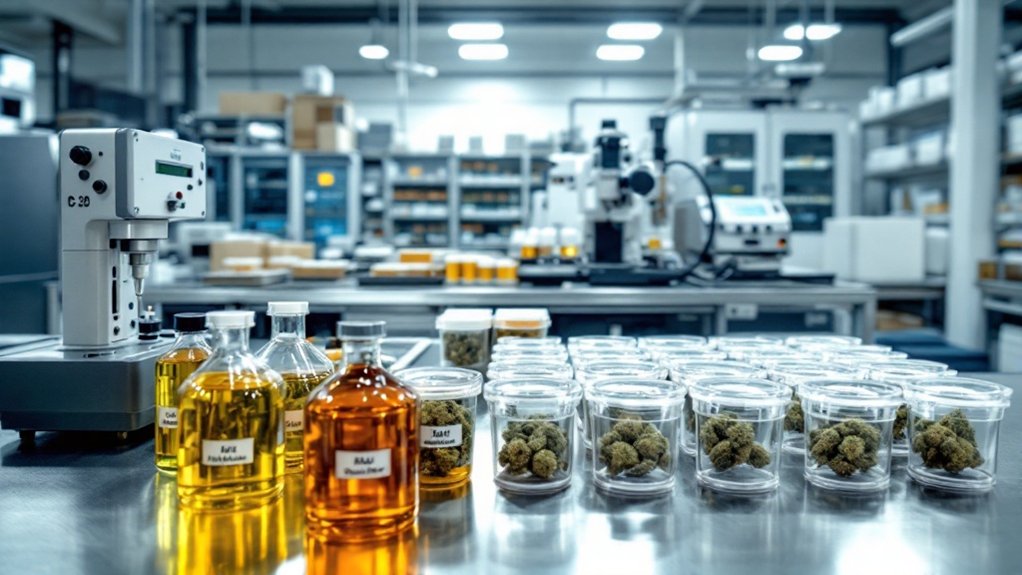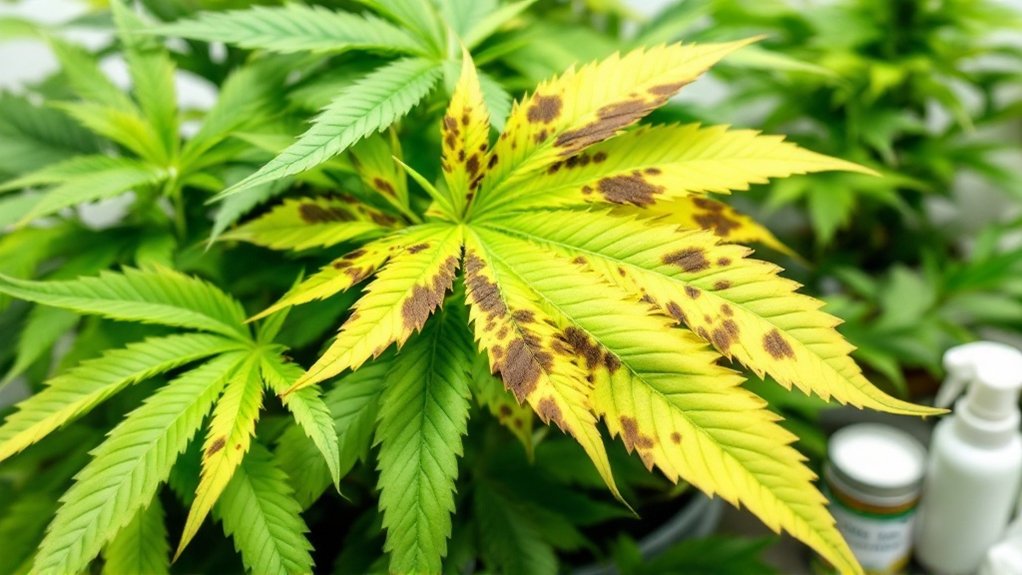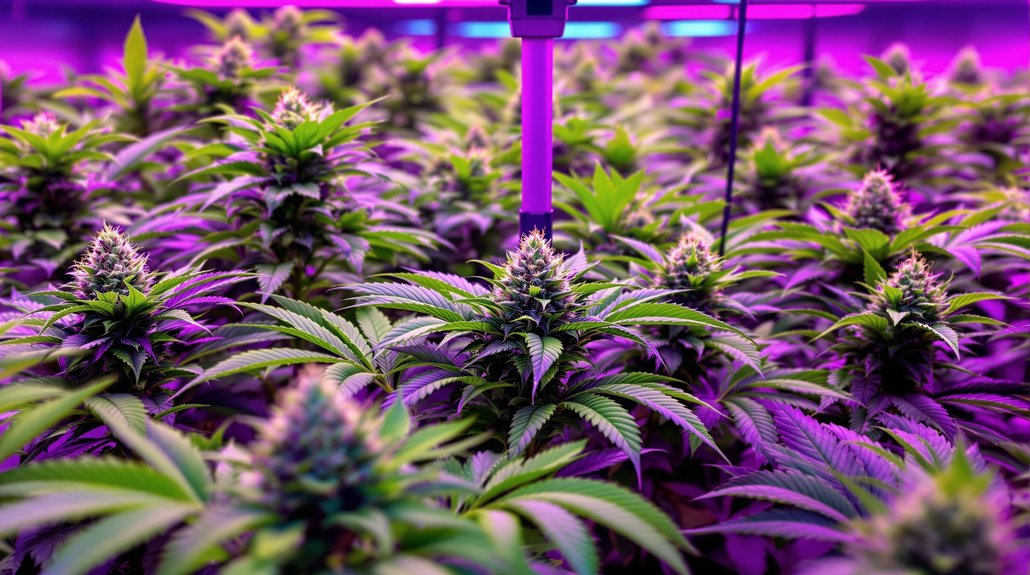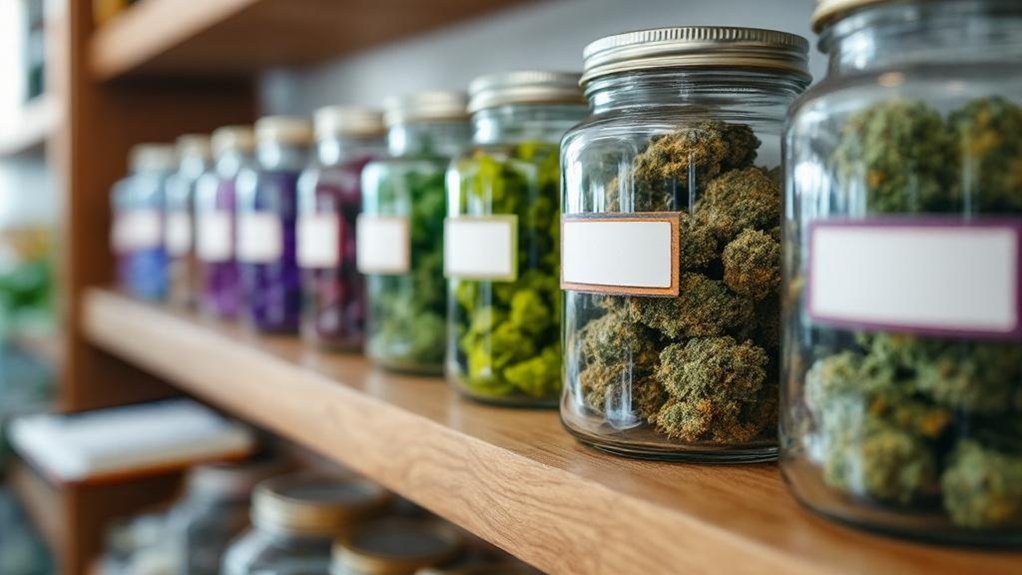Cannabis distribution companies employ multi-layered quality control systems that guarantee product safety and consistency. These systems include rigorous laboratory testing for potency and contaminants, sophisticated seed-to-sale traceability mechanisms, and thorough supplier qualification processes. Random product sampling verifies batch consistency, while employee training programs reinforce proper handling protocols. State regulations and Good Manufacturing Practices guide these quality assurance measures, creating accountability throughout the supply chain. The integration of these controls establishes the foundation for consumer confidence in cannabis products.
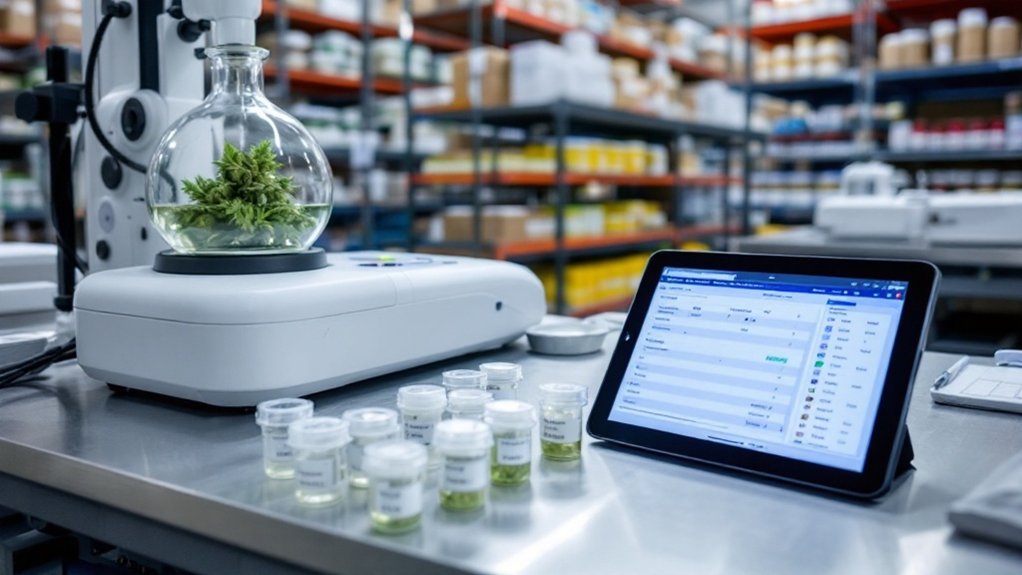
Maneuvering the complex landscape of cannabis distribution requires meticulous quality control systems that safeguard product integrity from cultivation to consumer. Distribution companies implement stringent quality control measures that align with state regulatory requirements and Good Manufacturing Practices, particularly in European markets where GMPs are mandatory for medicinal cannabis. These measures guarantee consistency in product characteristics including potency, terpene profiles, and visual appearance, which are essential elements of cannabis product quality. Ensuring reliability in testing processes involves adherence to specific standards and protocols that validate test results and uphold product safety.
Testing serves as the backbone of cannabis quality assurance, occurring at multiple production stages. Thorough analytical procedures evaluate potency, terpene content, and screen for pesticides, heavy metals, microbial contaminants, and residual solvents. Distribution companies conduct random product sampling to verify batch consistency, partnering with accredited laboratories to maintain testing integrity. These partnerships are vital as testing results determine whether products meet safety thresholds before reaching retail shelves.
Traceability systems represent another significant component, allowing companies to track cannabis products through the entire supply chain. Sophisticated batch tracking documents essential information including batch numbers, ingredient lists, manufacturing dates, and test results. Many distributors implement automated systems to enhance QA efficiency, streamline documentation, and maintain accurate records of shipments and quality issues. Comprehensive seed-to-sale tracking establishes accountability throughout the entire production and distribution process.
The supplier qualification process provides the foundation for incoming material quality. Distributors thoroughly evaluate potential suppliers, verify certificates of analysis, and sometimes conduct on-site audits to confirm cannabis biomass and ingredients meet rigid specifications. These supplier relationships directly impact finished product quality and regulatory compliance.
Rigorous supplier qualification ensures quality inputs, establishing the cornerstone of regulatory compliance in cannabis distribution.
Employee training programs guarantee consistent implementation of Standard Operating Procedures. Staff members receive instruction on sanitation protocols, facility cleanliness standards, and proper documentation practices. Studies show 90% of dispensary samples contained contaminants, highlighting the critical importance of thorough training and strict adherence to protocols. Regular compliance audits verify adherence to quality control measures and identify opportunities for process improvements.
When quality issues arise, remediation techniques such as Color Remediation Column technology can help address contamination concerns in cannabis extracts. These purification methods enhance extract quality, appearance, and safety profile. Quality assurance protocols identify non-compliance issues requiring remediation while regular audits drive continuous improvement.
Ultimately, thorough quality control systems protect public health by ensuring cannabis products remain free from contaminants, pesticides, and pathogens. Meticulous documentation demonstrates regulatory compliance while building consumer confidence in product safety and reliability. This systematic approach to quality management helps distribution companies navigate the evolving cannabis marketplace while maintaining product integrity.
Frequently Asked Questions
How Are Employees Screened for Cannabis Distribution Jobs?
Cannabis distribution companies implement multi-layered employee screening processes to maintain regulatory compliance.
Candidates typically undergo criminal background checks that disqualify individuals with violent felonies or convictions involving dishonesty. State-specific regulations determine screening requirements, which may include age verification and special licensing.
Background checks protect businesses from liability, reduce risk of product diversion, and guarantee proper product handling.
Post-hire monitoring often complements pre-employment screening for ongoing compliance verification in this highly regulated industry.
What Transportation Security Measures Protect Cannabis During Distribution?
Cannabis transportation security involves multiple overlapping systems to prevent theft and diversion.
Specially modified vehicles with GPS tracking, alarm systems, and secure storage compartments form the physical foundation of security protocols. These vehicles are operated by trained two-person teams who follow predetermined routes with regular check-ins.
Real-time inventory tracking using barcodes or RFID technology guarantees complete chain-of-custody documentation, while integrated surveillance systems monitor all handling activities throughout the distribution process.
How Do Distributors Handle Product Recalls?
Cannabis distributors handle product recalls through a structured process that begins with identifying affected products by batch numbers and immediately halting sales.
They notify regulatory bodies and issue consumer advisories with detailed product information and instructions.
Distributors then coordinate the quarantine, retrieval, and proper disposal of recalled products from retailers and dispensaries.
Following a recall, companies conduct root cause analysis to determine what went wrong and implement preventative measures to avoid future incidents.
Are There Insurance Options Specific to Cannabis Distribution Companies?
Yes, several insurance options are specifically designed for cannabis distribution companies. These include Commercial General Liability, Product Liability coverage, Property Insurance, Commercial Auto Insurance, and Cyber Liability Insurance.
Providers specializing in cannabis distribution insurance include Insureon, Admiral Insurance Group, XINSURANCE, W.R. Berkley Corporation, and Frontier Risk.
These policies address unique risks like product theft during transit, contamination, operational disruptions, and liability concerns.
Insurance requirements vary by state, and proper coverage helps meet licensing regulations.
What Environmental Sustainability Practices Exist in Cannabis Distribution?
Cannabis distribution companies implement various environmental sustainability practices throughout their operations. These include closed-loop recycling systems for packaging, carbon offset programs to reduce their environmental footprint, and partnerships with specialized waste management firms.
Many distributors utilize electric delivery vehicles, optimize transportation routes to minimize emissions, and employ energy-efficient warehouse technologies.
Additionally, some companies have adopted blockchain tracking systems to monitor sustainability metrics and guarantee compliance with environmental regulations across their supply chain.
